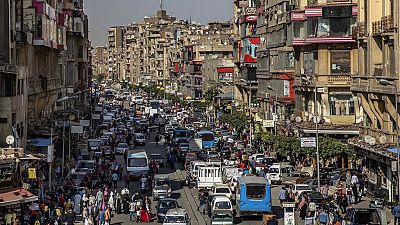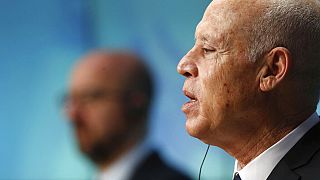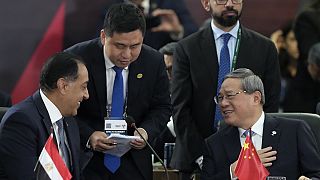Egypt
The International Monetary Fund has reached a preliminary agreement with the Egyptian government that paves the way for the Arab nation to access a $3 billion loan, officials said Thursday.
In a statement issued Thursday, Egypt's IMF mission chief Ivanna Vladkova Hollar said the 46-month deal known as an Extended Fund Facility Arrangement allows Egypt access to the $3 billion loan on the condition it implements a series of economic reforms.
IMF officials said a staff agreement between the Egyptian government and IMF leaders had been reached following months of talks, as Egypt struggles to combat surging inflation caused, in part, by the war in Ukraine.
In the hours before the announcement, Egypt's central bank announced a series of economic measures, including a hike in key interest rates by roughly 2 percentage points and a switch to a more "durably flexible exchange rate."
The bank said the exchange rate switch would now allow international markets to "determine the value of the Egyptian pound against other foreign currencies."
Following the announcement, the Egyptian pound dropped to a record low against the U.S. dollar from around 19.75 to at least 22.80, according to data provided by the National Bank of Egypt.
The Egyptian currency has already lost 20% of its value against the U.S. dollar this year. Jason Tuvey, a senior emerging markets economist for Capital Economics, expects it will lose another 18% before the end of next year.
The flexible exchange rate "will result in some short-term economic pain" but got the IMF deal approved and will "go a long way to restoring macroeconomic stability," said Tuvey.
"The commitment to durable exchange rate flexibility going forward will be a cornerstone policy for rebuilding and safeguarding Egypt's external resilience over the long term," said Hollar.
The Egyptian economy has been hard-hit by the coronavirus pandemic and the war in Ukraine, events that have disrupted global markets and hiked oil and food prices worldwide.
Egypt is the world's largest wheat importer, most of which came from Russia and Ukraine. The country's supply is subject to price changes in the international market.
Egypt's central bank said it had raised the new lending rate to 14.25% and the deposit rate to 13.25%. The discount rate was also raised to 13.75%, it said.
Egypt's monetary reforms and the IMF loan are designed to help offset rising inflation, which passed 15% in September and lighten the financial pressure on lower- and middle-income households.
Some of the agreement's main goals are to reduce Egypt's overall debt and bring about broad reforms to its fiscal policy, Hollar said.
As part of its monetary reforms, the central bank said it would begin removing a system for importers, a red tape process introduced in February to control the demand for the currency for imports.
Late on Wednesday, Egyptian Prime Minister Mustafa Madbouly announced an 11.1 % increase in the minimum monthly wage, from 2,700 pounds ($137) to 3,000 pounds ($152).
Madbouly's announcement marks the fourth hike in the minimum wage since President Abdel Fattah el-Sissi took office in 2014.













Go to video
WAFCON 2024/25: Road to the semi-finals begins
Go to video
U.S deportees put in solitary confinement in Eswatini: government spokesperson
Go to video
Togo holds first local elections since controversial power shift
00:43
American agency S&P downgrades Senegal's credit rating from B to B-
01:00
Russia launches 400 drones overnight in latest attacks on Ukraine
Go to video
"No Substance": Burna Boy apologises for controversial statement about Afrobeats